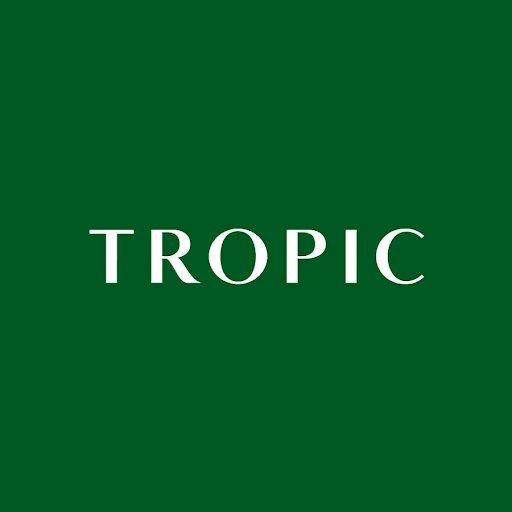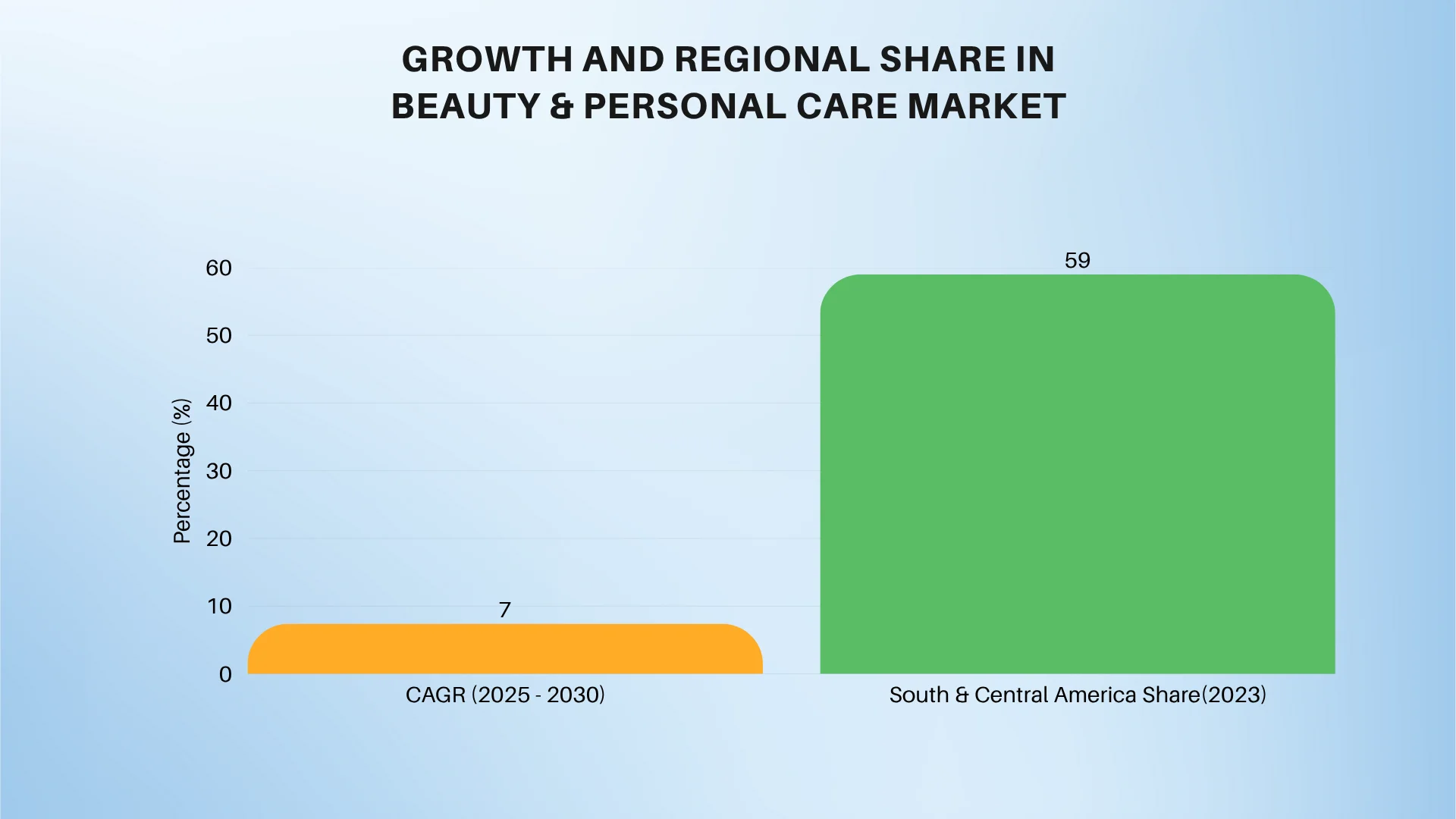When door-to-door selling first started, skincare products were some of the very first things to be sold, often with a friendly smile and a few samples in hand. Today, that same personal touch continues through MLM skincare companies, which have taken the old-fashioned art of direct selling and blended it with modern innovation and digital reach.
In this article, we will take you through 25 of the top MLM skincare brands. They have built a reputation by offering high-quality skincare products and combining them with an innovative business model to stay as relevant as ever.
This Article Contains:
A Comprehensive Look at the Top 20 Skincare Direct Selling Companies
Our list of the top skincare direct selling companies is curated using key parameters like global reach, customer satisfaction, compensation fairness, and long-term sustainability in the beauty market. We have also taken their 2024 revenue, sourced from Business For Home, into consideration while creating our list.
| Sl No | Company Name | Founder | CEO | Year Founded | Headquarters | Products | USP | Business Model Type | Achievements | Growth Rate | Revenue |
|---|---|---|---|---|---|---|---|---|---|---|---|
| 1 | Amway | Rich DeVos and Jay Van Andel | Michael Nelson | 1959 | Ada, Michigan, USA | Artistry skincare – cleansers, serums, moisturizers, anti-aging creams. | Premium, science-backed skincare products infused with botanicals. | Direct sales | 2024: Artistry Skin Nutrition™ and g&h™ earned Skin Cancer Foundation Seal of Recommendation for sun protection. | -4% | $7.4 billion |
| 2 | Natura & Co | Antonio Luiz Seabra | Joao Paulo Ferreira | 1969 | São Paulo, Brazil | Chronos anti-aging creams, Ekos body lotions, Fotoequilíbrio sunscreens. | Natural, vegan, and sustainably sourced skincare. | Direct sales + retail + digital | 2024: Natura achieved the Carbon Integrity Platinum Seal from VCMI. | -10% | $4.2 billion |
| 3 | Mary Kay | Mary Kay Ash | Ryan Rogers | 1963 | Addison, Texas, USA | TimeWise®, Clinical Solutions®, Clear Proof®, MKMen, etc. | Dermatologist-validated formulations; wide range for different skin concerns. | Direct sales with emphasis on personal consultations | Named #1 Direct Selling Brand of Skin Care & Color Cosmetics worldwide by Euromonitor International (2023–2025). | -4% | $2.4 billion |
| 4 | Nu Skin | Blake Roney, Sandra N. Tillotson, Steven J. Lund | Ryan Napierski | 1984 | Provo, Utah, USA | ageLOC LumiSpa® iO, ageLOC Tru Face® Retinol Peptide Complex, Nutricentials® Bioadaptive Skincare, Epoch® Baobab Body Butter. | Advanced anti-aging devices and bioadaptive skincare solutions. | Direct sales | 2025: ageLOC LumiSpa® iO named Best Cleansing Device for the third consecutive year at the NewBeauty Awards. | -12% | $1.7 billion |
| 5 | Belcorp | Eduardo Belmont | Erika Herrero | 1968 | Lima, Peru | L’BEL Nocturne Serum, Dermo Clarité, Pro-Adapt Renew, Collagen Serum. | Advanced skincare targeting anti-aging and skin clarity. | Direct sales + retail + e-commerce | 2024: Recognized as a Distinctive Socially Responsible Company (third consecutive year). | 0% | $780 million |
| 6 | Arbonne | Petter Mørck | Jennifer Orlando | 1980 | Irvine, California, USA | DermResults® Glow Serum, Glow Eye Cream, Advanced 5-Step Regimen. | Vegan, cruelty-free skincare with clinically tested results. | Direct sales | 2024: Derm Results serum won Silver for Best Vegan Anti-Aging Product at Green Beauty Awards. | 0% | $700 million |
| 7 | Oriflame | Jonas af Jochnick, Robert af Jochnick | Anna Malmhake | 1967 | Schaffhausen, Switzerland | NovAge+ Ultimate Lift, SkinRelief, Love Nature Aloe & Coconut, Love Nature Turmeric & Honey. | Clinically proven results with natural ingredients. | Direct sales + social selling | Uses 100% renewable electricity in all sites since 2018. | -19% | $653 million |
| 8 | Amorepacific | Suh Sung Whan | Kyungbae Suh | 1945 | Seoul, South Korea | Vintage Single Extract Ampoule, PRIME RESERVE Retrinity Line, Treatment Enzyme Cleansing Powder. | Umbrella company housing major K-beauty brands like Etude, Laneige, innisfree. | Direct + omni-channel sales | Received CES Innovation Award for six consecutive years (2019–2025). | 0% | $585 million |
| 9 | RIMAN | Joong Hyun Ahn | Joong Hyun Ahn | 2018 | Daegu, South Korea | Incellderm Expert Ritual, Radiansome™ Line, Active Cream EX, Calming Balance Gel. | Combines Korean botanicals with dermatological science. | Direct sales | 2025: Holds 16 patents and won 45+ international beauty awards. | 0% | $545 million |
| 10 | Yanbal International | Fernando Belmont | Janine Belmont | 1967 | San Isidro, Peru | Extracto Divino Youth Renewal Complex, Sentiva Cleanser & Moisturizer, Gaia Body Lotion. | Leading direct-selling beauty company in Latin America. | Direct sales + affiliate marketing | 2023: Launched ÍCONO perfume, producing 300,000 bottles globally. | -10% | $450 million |
| 11 | Tiens | Li Jinyuan | Li Jinyuan | 1995 | Tianjin, China | Celles Tiane Brightening Series, Prime U Cosmetics, Ginseng Multi-Vitamin Series. | Integrates traditional Chinese medicine with biotechnology. | Direct sales + e-commerce | 2024: Chairman awarded “Influential Person of the Year”. | 0% | $435 million |
| 12 | Farmasi | Dr. Cevdet Tuna | Sinan Tuna | 2003 | Istanbul, Turkey | Dr. C. Tuna Calendula, Age Reversist, Lumi Radiance, Tea Tree, Lavender Body Lotion. | High-quality skincare at affordable prices. | Direct + social selling | 2024: Ranked #27 on Direct Selling News Global 100 List. | -3% | $429 million |
| 13 | Pola | Shinobu Suzuki | Satoshi Suzuki | 1929 | Tokyo, Japan | B.A Lotion, White Shot Series, Wrinkle Shot Medical Serum. | Luxury skincare blending biotech innovation with traditional beauty rituals. | Direct + offline sales | 2024: Recognized as Japan’s top anti-aging skincare innovator. | -5% | $411 million |
| 14 | Younique | Derek Maxfield & Melanie Huscroft | Derek Maxfield | 2012 | Lehi, Utah, USA | GlowPlexion, YOU·OLOGY UPLIFT Beauty Oil, Moodstruck Epic Mascara. | Empowering women through high-quality, easy-to-use beauty products. | Direct + e-commerce + social selling | 2024: Recognized for excellence at DSA Engage Conference. | 0% | $368 million |
| 15 | LR Health & Beauty | N/A | Jörg Körfer | 1985 | Ahlen, Germany | Aloe Vera Drinking Gel, Zeitgard Pro Device, Zeitgard Signature. | Premium German wellness and beauty brand. | Direct + social commerce | 2024: Launched LR Health Mission and Zeitgard Signature innovations. | 2% | $303 million |
| 16 | Neora | Jeff Olsan | Jeff Olsan | 2011 | Texas, USA | Age IQ Night & Day Creams, Neo-FILLER Elixir, Eye Serum. | Clean, science-based beauty and wellness brand. | Direct + social + e-commerce | 2024: Won Excellence in Business Award from DSA. | 0% | $300 million |
| 17 | Noevir | Hiroshi Okura | Takashi Okura | 1964 | Kobe, Japan | NHS Line, 99+ Series, Vie deLight Skincare Set, 105 Line. | Premium Japanese skincare using natural ingredients. | Direct sales | N/A | 0% | $245 million |
| 18 | Best World International | Dr. Doreen Tan & Dora Hoan | Dora Hoan | 1990 | Shanghai, China | DR’s Secret, Avance, Optrimax, PentaLab, Miraglo. | Premium skin care, health, and wellness products backed by scientific R&D, focusing on efficacy, purity, and concentration | Direct sales | 2024-2025 Great Place to Work.com recognized the company. | 3% | $235 million |
| 19 | Elken | AK Tan | Falko Leonhardt | 1995 | Malaysia | Elken Spirulina, LivXtra Yang, Trigen-S, LD Venus Gold, Elfa-M, AROSA Essential Oil Blend & Massage Cream. | Offers products that provide nutrition, detoxification, health regulation, oxygen intake enhancement, etc. | Direct sales | 2024: Elken Vietnam received the Golden Product for Community Health Award to MRT ELG6 Colostrum TPBVSK and LD Venus Gold for excellence in product quality and societal contribution. | 0% | $200 million |
| 20 | Ringana | Andreas Wilfinger & Ulla Wannemacher | Andreas Wilfinger | 1993 | Hartberg, Austria | FRESH Cleanser, Hydro Serum, Cream Medium, Eye Cream, Sunscreen SPF 15. | Fresh organic cosmetics made from natural ingredients. | Direct + distance + e-commerce | N/A | 0% | $193 million |
Disclaimer: The company details and financial figures are gathered from verified public sources and may be updated periodically.
A Closer Look at the Two Skincare Direct Selling Leaders
In this section, we take a closer look at the two popular direct-selling skincare companies that have redefined the skincare space with innovative products and business models.
1. Mary Kay

Mary Kay is one of the best direct sales skincare companies that offers high-quality skincare. Its popular skin ranges include TimeWise, Clinical Solutions, and Botanical Effects. These products are formulated to address a wide range of skin concerns and suit different skin types.
Popular Products
Mary Kay Clinical Solutions® Retinol 0.3: Every-day retinol serum from Mary Kay’s latest Clinical Solutions range.
Mary Kay® Hydrating Cleanser: A creamy foaming cleanser, which is one of the brand’s top-selling products.
Mary Kay® Exfoliating Scrub: A daily exfoliant suitable for all skin types.
Mary Kay Clinical Solutions® PHA + AHA resurfacer: A chemical exfoliant for smoothing skin texture.
Time Wise® Antioxidant moisturizer: A daily moisturizer from Mary Kay’s iconic Time Wise® range of skincare.
Compensation Plan
| Compensation Component | Details |
|---|---|
| Retail Profit | Consultants can earn up to 50% profit on their personal retail sales. |
| Great Start Period | New consultants qualify for the Great Start period if they place $600 or more in initial or cumulative wholesale orders. |
| Personal Team Commission | Personal team commissions start at 4% and increase to 9% and then 13% as the consultant reaches higher ranks. |
| Unit Commissions | Unit commissions begin at 13% of the unit volume for sales between $1,000 and $5,000 and increase to 23% if the unit commissions exceed $5,500. |
| Offspring Commissions | Consultants at the Sales Director rank or above earn first-line offspring commissions ranging between 5% and 7%, while second-line offspring commissions are fixed at 1%. |
| Offspring Sales Director Bonuses | Bonuses are available for consultants who achieve the Sales Director rank and meet qualifying offspring sales criteria. |
| Team-Building Cash Bonus | Consultants receive a $50 cash bonus for each new personal team member who becomes Great Start-qualified. |
Latest Awards and Recognition
Forbes 2025 Ranked the company the #9 Best Brand for Social Impact.
Euromonitor International Named Mary Kay as the #1 Direct Selling Brand for skincare and color cosmetics for three consecutive years from 2023.
Sustainability Recognition Honored the company for the second year in a row for its conservation and sustainability efforts in Texas.
Women’s Wear Daily Beauty Inc. Ranked Mary Kay #11 in the Top 100 Beauty Companies.
2. Younique

Younique was launched in 2012 and, since then, has gained attention among the skincare direct selling companies for its clean and high-quality products. The company has adopted an innovative social selling approach where brand ambassadors are encouraged to expand their reach through social media platforms.
Popular Products
YOUTHPLEXION Cleanser: Daily cleanser suitable for all skin types.
YOU.OLOGY eye mask pairs: This is one of the new products launched by the brand.
YOU.NIVERSAL gentle gel cleanser: A gel-based cleanser suitable for all skin types.
YOUNIQUE Quadra Lash product: One of Younique’s best-selling products, used to enhance lash growth.
YOUNIQUE BARE.YOU BB Minted Moisturizer+: Another popular product of the brand. This multi-functional BB cream comes with hydrating benefits as well.
Compensation Plan
| Compensation Component | Details |
|---|---|
| Retail Commissions | Brand Ambassadors can earn 20% on personal retail sales up to $499. As monthly Personal Retail Sales (PRS) increase, the commission grows to 25% ($500–$999), 30% ($1,000–$1,999), 35% ($2,000–$2,999), and 40% ($3,000+) through Month-End Tiered Retail Pay. |
| Team Commissions | Commissions are earned on 1st, 2nd, and 3rd level team sales, ranging from 5% to 10%, depending on the ambassador’s rank. |
| Title Qualifications | Younique has 13 titles, from Brand Ambassador to Chief Brand Executive. Advancement is based on PRS and Monthly Title Sales, with higher ranks unlocking larger team commissions. |
| Team Pay Level | Younique pays level commissions of up to 3 levels starting from the Brand Specialist title, qualifying for 1 level at 5%; senior brand specialists qualify for 2 levels at 5.5% and 0.5%, while brand directors and above titles qualify for 3-level commissions at 7%, 2% and 1%, respectively. |
| Resale Margin | Ambassadors can purchase products at a discount and resell them to generate profit from the price difference. |
| Discretionary Incentives | Ambassadors may qualify for promotions, trips, or special events offered periodically by Younique. |
Exploring the Top 5 MLM Skincare Companies in the Market Today
The table below contains a list of skincare companies that operate under the multi-level marketing model. These brands are selected based on their market presence and popularity. They are further ranked based on the 2024 revenue sourced from Business For Home.
| Sl No | Company Name | Founder | CEO | Year Founded | Headquarters | Products | USP | Business Model Type | Achievements | Growth Rate | Revenue |
|---|---|---|---|---|---|---|---|---|---|---|---|
| 1 | Atomy | Han-Gill Park | Han-Gill Park | 2009 | Chungcheongnam-do, South Korea | Absolute CellActiv Skincare (Toner, Ampoule, Serum, Lotion, Eye Complex, Nutrition Cream) | Offers advanced skincare with patented CellActive™ technology | Network Marketing | 2024: Received the King Sejong Award for Patent cosmetics technology | 7% | $1.8 billion |
| 2 | MONAT Global | Luis Urdaneta & Rayner Urdaneta | Rayner Urdaneta | 2014 | Doral, Florida, USA | Rewind™ Age Control Nectar, C. Radiance™ Illuminating Serum, Night Haven™ Overnight Age Control Cream, Be Gentle™ System | Naturally based, anti-aging skincare with clinically tested results | Multi-level marketing + affiliate marketing | 2025: Named among the Top 50 U.S. Beauty Companies by GlobeNewswire | -14% | $600 million |
| 3 | Cosway | Al Chuah Choong Heong | Ms Chryseis Tan | 1979 | Kuala Lumpur, Malaysia | Bioglo Goats Milk Facial Cleanser, Bioglo Oil Control Facial Foam, Designer Collection R Series Ultra Rich Hand & Body Lotion | First Malaysian homegrown MLM brand | Multi-level marketing + wide retail chain | 2022: Recognized as one of Asia-Pacific's top four multi-level marketing companies | 0% | $350 million |
| 4 | Hinode Cosmeticos | Francisco and Adelaide Rodrigues | Sandro Rodrigues | 1988 | São Paulo, Brazil |
Routine Dermo Skincare Line: - Facial Plumping Serum - Balancing Cleansing Gel - Glycolic Acid Facial Solution - Vitamin C Antioxidant Serum Other Products: - Corps Lignea Body Modeling Gel |
Specializes in high-quality, affordable beauty and wellness products, with a unique Skintelligent technology. | MLM / Network marketing | N/A | -9% | $136 million |
| 5 | Tropic Skincare | Susie Ma | Susie Ma | 2011 | England, UK | Smoothing Cleanser, Skin Feast Moisturizer, Rainforest Dew Serum, Skin Dream Night Cream, Lip Love Balm, Body Love Butter, etc. | Vegan, freshly made, ethically sourced, cruelty-free, and environmentally friendly products | Network marketing + social selling + affiliate marketing | 2024: Won CEW UK Consumer Choice Award for "Best New Skin Product" with Youth Potion Enriched Retinal Complex | N/A | $85 million |
Disclaimer: The company details and financial figures are gathered from verified public sources and may be updated periodically.
Detailed Review of Two Successful MLM Skincare Companies
In this section, we have chosen two MLM skincare companies that offer a fresh niche. While MONAT Global is known for its premier products, Tropic Skincare has been gaining popularity among beauty enthusiasts for its “Fresh” products.
1. MONAT Global

MONAT Global is recognized as one of the best MLM skincare companies with a luxury brand positioning. Its premium formulations and focus on results have earned it a loyal customer base worldwide.
Popular Products
REJUVENIQE™ Oil Intensive: Multipurpose oil for hair and skin, containing a proprietary blend of 13+ natural plant and essential oils.
Be Balanced™ Foamy Cleanser: A foaming cleanser, as part of MONAT’s new Be Balanced range of skin care products, containing natural fruit acids.
Rewind™ Age Control Nectar: An offering under MONAT’s anti-aging product range. It contains MONAT exclusive peptides and other active ingredients for maximum potency.
30 Second Miracle™ Instant Perfector: An under-eye serum with lily flower extracts and peptides.
MONAT BB Cream SPF 40™ Broad Spectrum Moisturizer: MONAT’s multipurpose skincare offering, which offers the coverage of a BB cream but with sun protection.
Compensation Plan
Market Partners earn 30% on retail sales and 15% on sales made to VIP customers.
The company offers many MLM bonuses. Super Seller bonus of 3% is awarded for sales between 500 and 999. Similarly, there is a 1K super seller bonus of 4% for sales volume between 1,000 and 1,999, 6% for sales between 2-3k, 10% for sales between 3k to 9k, and 15% for 10,000 PV and above.
Market Partners can also earn a 7% unilevel bonus for their first level of downline members. Unilevel bonuses are tiered, with higher ranks earning from more tiers. The bonus percentage decreases through the tiers.
Managing Market Builders are eligible for a 2% group volume bonus.
Associate Market Partners and above can earn 3-4% generation bonuses for up to 5 generations.
2. Tropic Skincare

Tropic Skincare has become one of the most talked-about new MLM skincare companies. The brand is known for its fresh, natural, and vegan-friendly products. It's also big on sustainability and believes in skincare that's good for the planet and our skin.
Popular Products
Smoothing Cleanser: A complexion-improving face wash contains dermatologically approved ingredients.
Youth Potion: This is Tropic’s award-winning enriched retinal complex serum with COSMOS organic ingredients.
Skin Feast Nourishing Moisturizer: A moisturizer made with freshly squeezed over 20 flower plants and seed extracts.
Morning Mist Soothing Toning Essence: Contains nutritious avocado milk, aloe vera juice, and hyaluronic acid.
Comfort Food Deep Hydrating Mask: Contains an anti-oxidant mix of berries, resurrection flower extract, calming allantoin, and bisabolol.
Compensation Plan
The Tropic skincare compensation structure resembles a classic generation MLM plan where Ambassadors are placed in generations below their leaders.
There is a basic 25% commission on every sale made by the ambassadors.
Ambassadors can move to the Senior Ambassador level by selling products worth approximately $500.
Apart from the regular commissions, Ambassadors can also earn a personal sales bonus. This bonus is tiered, starting from 1.5%, and increases based on sales volume.
Generation bonuses start from the Senior Leader level. Platinum Executive and Diamond Executive Ambassadors receive generation bonuses of up to 4 levels.
Latest Awards and Recognition
2024: Tropic Skincare won the 2024 CEW UK Consumer Choice Award for "Best New Skin Product" with their Youth Potion Enriched Retinal Complex.
Global Market Statistics Highlighting the Growth of the MLM Skincare Industry

According to the World Federation of Direct Selling Associations, Cosmetics and personal care products made up 24.2% of global direct-selling sales in 2023, making it the second largest category behind wellness.
A separate report from Grand View Research states that the global beauty and personal care market is expected to witness the fastest CAGR of 7.4% from 2025 to 2030.
The South and Central American Region led globally in 2023 with a 59% share of total sales in this category.
Conclusion
Skincare has always thrived on personal connections. People trust recommendations that come from real experiences. This is exactly what keeps MLM skincare companies so relevant.
Today, these companies are blending personal selling, community-driven marketing, and product innovation. It makes this category well-positioned to keep growing and glowing in the years ahead. If you are looking at this space as a distributor or an aspiring entrepreneur, it’s a sector full of immense growth and potential.
FAQs
1. What is an MLM Skincare Company?
An MLM skincare company sells beauty products through a network of independent distributors who earn commissions on their sales and the sales of people they recruit.
2. How to Choose the Right MLM Skincare Company?
If you are looking at a business opportunity in the Skin care MLM business, you must look for brands with high-quality, tested products, transparent compensation plans, and a supportive community. This way, you will be investing in both skincare and a trustworthy business.
3. What are the emerging trends in the MLM Skincare Industry?
Latest trends include natural and vegan formulations, anti-aging innovations, personalized skincare routines, and digital selling strategies that make connecting with customers easier than ever.
4. Are MLM skincare companies legal?
Yes, MLM skincare companies are legal as long as they focus on product sales rather than just recruitment, follow regulations, and provide a fair compensation plan.
5. Is Tropic Skincare an MLM?
Yes, Tropic Skincare is an MLM company where individuals, known as Ambassadors, sell skincare products and can earn commissions from their sales and the sales of their team members they recruit. As of 2025, the company boasts over 20,000 Ambassadors across the UK.
References
-
World Federation of Direct Selling Associations
-
Business For Home
-
Direct Selling News
Disclaimer: Global MLM Software does not endorse any companies or products mentioned in this article. The content is derived from publicly available resources and does not favor any specific organizations, individuals or products.







